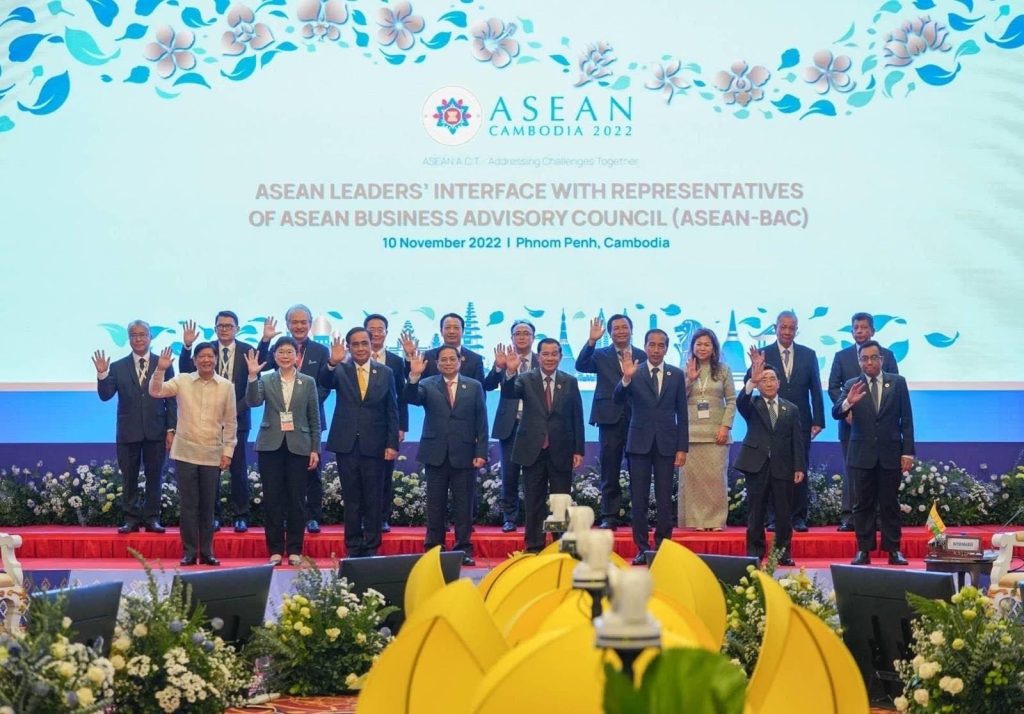
Building and Improving Lives
November 10, 2022
Creating an Inclusive ASEAN Economy
November 17, 2022
Concepcion Elated As ASEAN Leaders Prioritize MSMEs Digitalization
Entrepreneurship is a key driver of the ASEAN economy and their digitalization will be vital in achieving inclusive growth in the region. This appeared to be the view of the leaders of the ASEAN as it wrapped up two days of top-level meetings at the ASEAN 2022 Summit in Phnom Penh, Cambodia, according to Go Negosyo founder and ASEAN Business Advisory Council (BAC) Chair for the Philippines Joey Concepcion.
“I am elated that the leaders were unanimous in saying that MSMEs are the true engine of growth in ASEAN,” said Concepcion, as he reiterated that, in the region, MSMEs comprise 99 percent of all establishments, contribute 85 percent of jobs, and 45 percent of GDP. He also expressed optimism as the leaders recognized the role of governments in helping MSMEs.
“We’re all moving in the same direction,” said Concepcion, noting how the ASEAN leaders affirmed how digitalization among MSMEs can enhance competitiveness and productivityacross the region.
“To upgrade, upskill and upsize our MSMEs, digital transformation is vital,” said Philippine President Ferdinand Marcos Jr. in his address at the ASEAN Business and Investment Summit (BIS). “This is in addition to our efforts to enable our systems to catch up with the rapid development of the digital economy,” the President said.
MSMEs are also most vulnerable to the uncertainties, said NeakOknha Kith Meng, Chair of the ASEAN BAC during his opening statement at the summit. He recommended to make economic integration a priority to achieve faster economic resilience at national and regional levels. “Otherwise, we are helpless amid all the uncertainty especially our workforce and our MSMEs,” he said.
Concepcion shared that digitalization and cooperation are central to the regional mentorship program called the ASEAN Mentorship for Entrepreneurs Network (AMEN) program.AMEN aims to share best practices and know-how among MSMEs in the ASEAN. It is the legacy project of the Philippines’s 2017 chairmanshi
“With AMEN, MSMEs can learn from other small entrepreneurs and mentors across the region. Mentors can also exchange knowledge and learn from each other on a regional scope,” saidConcepcion, whose non-profit mentors thousands of MSMEs in the Philippines every year.
“Our goal is to scale up our MSMEs through access to what we call the three M’s of MSME development – that is, mentorship, money and market – using both traditional and digital platforms,” he said.
Phase 1 of AMEN was piloted in Indonesia, Malaysia and the Philippines in 2019, with 127 entrepreneurs and 48 mentors participating. Phase 2 is now on its build up stage and is set to be implemented across the ASEAN. Both phases of the project were funded by the Japan-ASEAN Integration Fund.
“AMEN plans to train, in each ASEAN country, between 1,000 to 2,000 MSMEs each year. This we hope will one day grow to a network of thousands of confident entrepreneurs, able to grow and generate more jobs in the ASEAN, creating an inclusive economy and bringing prosperity for all,” said Concepcion.

2/F RFM Corporate Center, Pioneer cor. Sheridan Sts. Mandaluyong City, Metro Manila, Philippines

